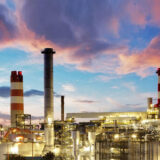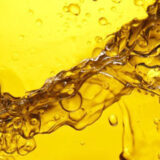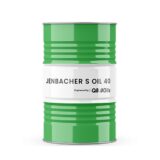
PETRONAS calls for urgent upgrade in lubricant standards across Asia
On September 11, at the ALIA/F&L Asia Lubricant Exhibition in Kuala Lumpur, Malaysia, Ravi Tallamraju, chief technology officer of PETRONAS Lubricants International Sdn. Bhd., emphasised the urgent need to upgrade lubricant quality across Asia. He stressed that lower-quality oils can cause significant damage in modern engines and noted the critical role of lubricants in meeting evolving emission standards.
Beyond Euro 4 emission standards, first introduced in 2005 for passenger cars in the European Union, reducing emissions within the engine is no longer feasible, says Tallamraju. The focus has shifted to post-combustion exhaust treatment methods such as exhaust gas recirculation (EGR) and selective catalytic reduction (SCR). Euro 6 requires a combination of EGR, SCR, diesel particulate filters and oxidation catalysts to meet strict targets. Euro 7 adds further complexity, with an additional close-coupled SCR catalyst, which ensures faster and more effective treatment of exhaust gases.
As vehicle emission standards become more stringent, particularly with Euro 6 and Euro 7 regulations, Tallamraju emphasised the increasing importance of lubricants as a critical enabler of these new engine technologies. These EU regulations have been widely adopted in Asia, with some tweaks in certain markets like China. “Some of these technologies cannot be introduced unless you have the right lubricant to make it possible,” he explained.
He also highlighted a significant gap in lubricant quality in many parts of Asia, particularly in Southeast Asia. A large portion of the market still relies on heavy viscosity lubricants, such as 20W-50 oils, which are incompatible with modern engines. These older lubricants not only fail to flow properly but also contribute to increased emissions and carbon dioxide. Tallamraju questioned why more than half of the market still uses heavy-viscosity grades, noting the persistence of outdated products like API CF-4, a heavy-duty lubricant that is 35 years old and has been obsolete for over 20 years.
In Malaysia, only 6% of lubricants meet Euro 5 and above requirements for heavy-duty diesel oil, with the remaining 94% of products high in sulfur and phosphorus. These elements can cause severe damage to modern emission systems, he said. “We are using hardware designed for low emission, high fuel economy applications, but we are not using the right lubricants,” Tallamraju noted. As an industry, we have a responsibility to think seriously about this, he added.
In the past, lower-quality lubricants were tolerated by older engines, but this is not the case with the new generation of vehicles. Upgrading lubricant quality is one of the most cost-effective ways to ensure the longevity and efficiency of modern engines.
Tallamraju pointed to Bolivia as an example, where more than 10 years ago they introduced minimum performance standards such as API CH-4 for diesel engines and API SL for gasoline engines, which drove significant improvements. Yet many countries in Asia still do not have any minimum performance requirements, he said.





.jpg)





